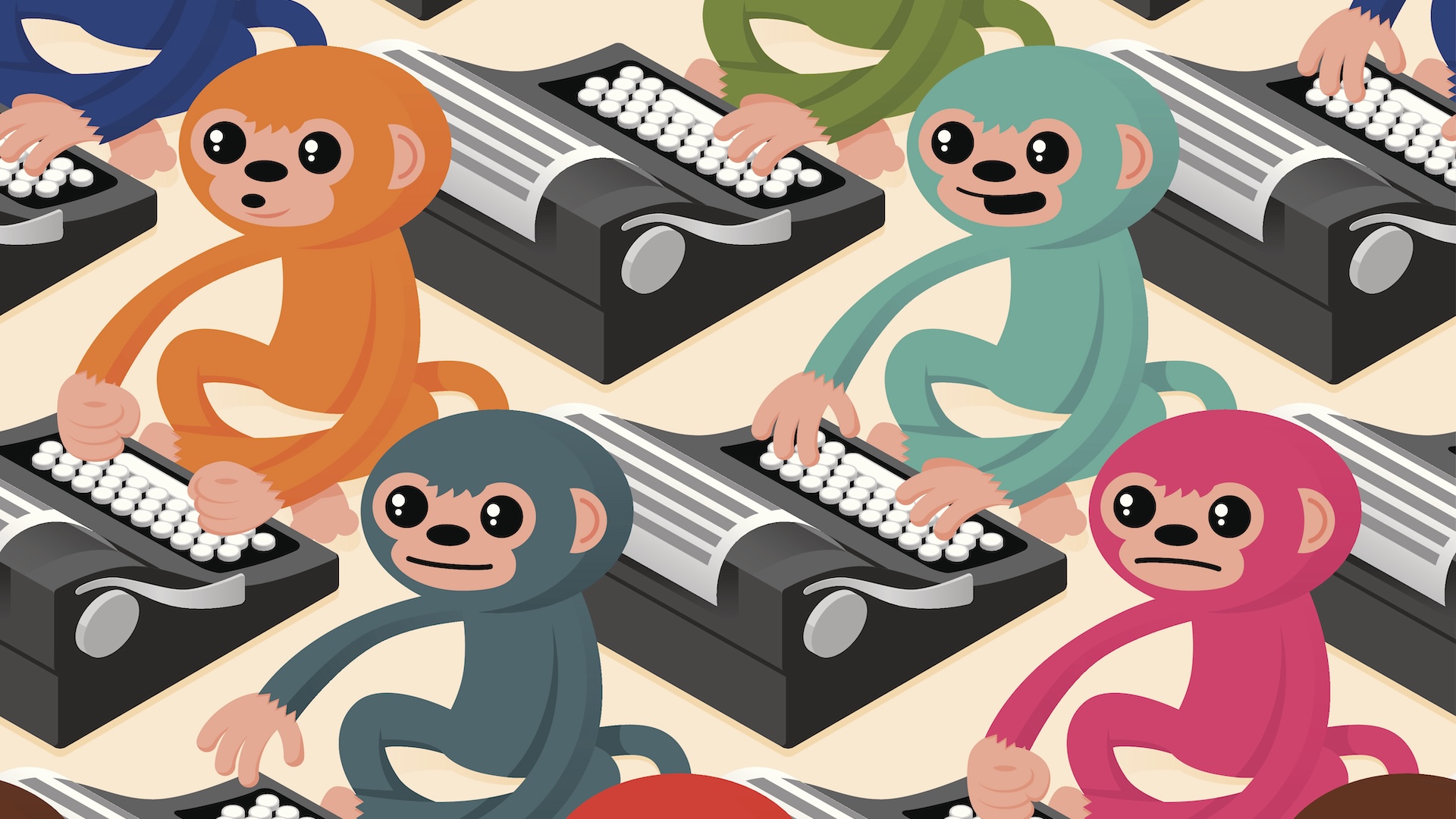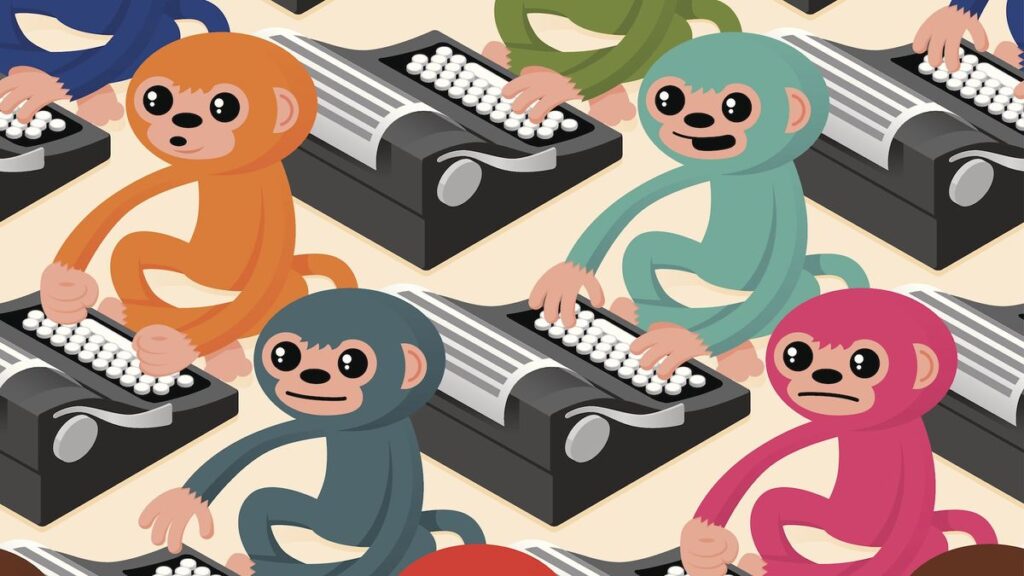
Given an infinite amount of time, an infinite number of monkeys randomly prodding keys on a typewriter could, in theory, eventually replicate the works of William Shakespeare. At least, that’s what a thought experiment called the infinite monkey theorem states.
The infinite monkey theorem was first proposed by mathematician Émile Borel in 1913, and it’s been a popular way to understand randomness and probability for decades. But could a monkey really type out Shakespeare?
Although it’s an interesting theoretical exercise, this task is probably impossible within the lifetime of our universe, experts told Live Science. That’s because the “infinite” component is a key part of the infinite monkey theorem. The chance of a monkey randomly typing anything coherent is very unlikely. However, in the context of infinity, even the most unlikely things could eventually occur.
But our universe isn’t infinite, Stephen Woodcock, an associate professor of math and physical sciences at the University of Technology Sydney and co-author of a study about the infinite monkey theorem, told Live Science. “It’ll last for a very long time, but it won’t last forever,” Woodcock said. “There will be a lot of monkeys born, but there will not be an infinite number of monkeys born.”
Related: Can you count past infinity?
Not enough monkeys, not enough time
To see whether the infinite monkey theorem was actually applicable in the real world, Woodcock and a colleague did some calculations with theoretical chimpanzees. (Chimpanzees are apes, not monkeys, but the researchers chose them because they, along with bonobos, are our closest relatives.) Assuming that a chimpanzee spent most of its life tapping away on a typewriter, they calculated the probability of the primate typing a word, a sentence, a book and the complete works of William Shakespeare.
They found that the chance a chimp would type the word “banana” in its entire lifetime of about 30 years was only about 5%. A sentence was even less likely. In fact, the likelihood of any of the chimpanzees currently living in the world typing, “I chimp, therefore I am,” in their lifetimes was 2 x 10-20.
“In practical terms, it’s basically certain that no chimp alive now would ever type that if you left it for its entire lifetime,” Woodcock said. However, the researchers found that in the unlikely event chimps kept breeding and typing for the rest of the universe’s lifetime (about 10100 years), there was a near-certain chance that one chimp would eventually write the sentence.
But when it came to replicating a whole book in the next few trillion years, things started to look very unlikely. Woodcock found there was a “vanishingly small chance” any future chimp would ever mimic “Curious George,” let alone Shakespeare, before the heat death of the universe.
The results are a reminder that even in the context of massive numbers, infinity is still incomprehensibly larger. It’s also evidence that while thought experiments can help convey interesting concepts, they don’t necessarily apply to the real world.
“Just because something is certain in the infinite limit doesn’t mean that that has any bearing in our finite universe,” Woodcock said.
Real-life infinite monkeys
In their research, Woodcock’s team went a little bananas, using calculations that relied on some very generous assumptions. They supposed the chimps typed one character every second of the day for 30 years straight, used a slightly simplified keyboard and pressed each successive key at random.
We know these assumptions probably aren’t realistic, because the infinite monkey theorem was once simulated in real life. As part of a 2002 art exhibit, a group at the University of Plymouth in the U.K. gathered six Celebes crested macaques (Macaca nigra) at Paignton Zoo in England and gave them a keyboard for four weeks.
“As the computer was warm, it was quite popular, and there was some writing produced,” Geoff Cox, an organizer of the experiment who’s now a professor of art and computational culture at London South Bank University, told Live Science in an email.
Unfortunately for Shakespeare enthusiasts, that “writing” was just five pages of gibberish consisting mostly of the letter “S.” “It was a hopeless failure in terms of science but that’s not really the point,” Cox told The Guardian in 2003. “It was more like a little performance.”
To him, the “performance” told a story about the nature of animals. “Animals are not machine-like or rule-based systems and instead exhibit unpredictable behaviours,” he told Live Science.
Some of those unpredictable behaviors? Bashing the computer with a rock and pooping on the keyboard.
